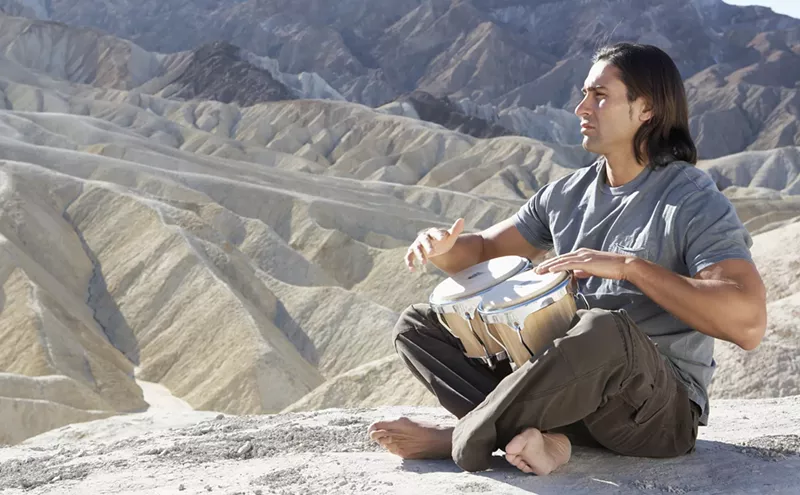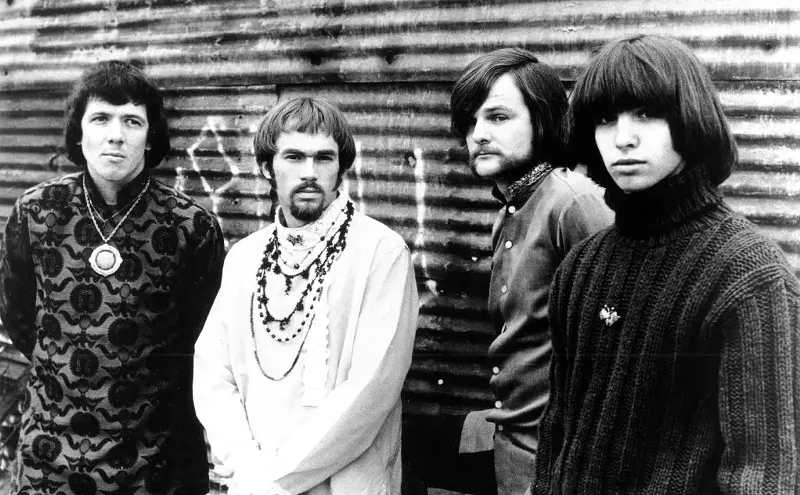Bill Haley rocks around the clock (1955) Elvis had already set the rock juggernaut in motion when he released his Sun Studios recording of "That's All Right" the year before, but "rock 'n' roll" entered the mainstream in 1955, when Haley & his Comets' "Rock Around the Clock" topped the U.S. charts. It's since been featured in classic movies like Blackboard Jungle and American Graffiti, but more famously as the theme music to one of America's most-loved and iconic TV series, Happy Days.
American Bandstand becomes an American institution (1957) In 1957, Philadelphia TV program Bandstand graduated from regional success story to national phenomenon when it became American Bandstand. With Dick Clark as its host, the show aired Saturday afternoons until 1989, becoming a facet of U.S. pop culture by regularly introducing the latest musical fads to a country rapidly changing because of the civil rights movement and its aftermath. Basically, it was the MTV of its day — but without the music videos (kind of like MTV today).
Elvis gets his draft notice (December 20, 1957) On March 24, 1958, Elvis became U.S. Army private #53310761. By October, he was serving his two-year duty in Germany. As a celebrity, he could have chosen to join the "Special Forces," a position that would have kept him from the public eye, but Elvis took his duty to America very seriously and opted to serve like every other grunt. In 1971, the Washington Post broke the story that Elvis had secretly met with President Nixon the previous December. Apparently, the drug-addled King of Rock 'n' Roll wanted to become a "Federal Agent-at-Large" for the Bureau of Narcotics and Dangerous Drugs. The man was, if anything, committed to his country.
Bob Dylan gets it wrong while still getting it right (1963) In 1963, Dylan released his album The Freewheelin' Bob Dylan and recorded its follow-up, The Times They Are a-Changin', to be released the following January. Freewheelin's "Masters of War," an attack on the military-industrial complex whose increasing power President Eisenhower had lamented, is arguably the most important song to come out of the folk music anti-war movement, while The Times tackled everything from the civil rights movement to poverty to the outsourcing of jobs. Dylan has never been more focused or hopeful, even if most of his work from this period exists now only as ironic prognostication. He's been called a prophet, but unfortunately, people in power rarely listen to prophets.
Jimi Hendrix plays "The Star-Spangled Banner" at Woodstock (August 18, 1969) Easily one of the most iconic moments in rock history, Hendrix's feedback-bruised take on the national anthem used guitar chords to imply machine-gun fire and the whistling of dropping bombs to the 400,000 men and women at Woodstock. It persists as a haunting attack on the government charged with defending the flag to which he was paying tribute.
Marvin Gaye asks, "What's going on? Seriously, guys, what's going on?" (May 21, 1971) There's a reason the '60s and '70s are said to have produced most of the greatest music of the modern world: The modern world was incredibly fucked up at the time, whether you lived in the U.S., France, Algeria, or Vietnam. Artists had a lot more than getting laid and shoegazing to write about. Marvin Gaye understood this and, going against his Motown master's will, produced the first soul album to take on the 10,000 Day War, the fallout of the civil rights movement, and urban unrest. The song, "What's Going On," has since become an American anthem for social consciousness.
Pop music tries to save Africa (1985) The problem with America is that the only people here who care about Africa are college students, Mormon missionaries, and pop stars — the last of which have never cared more than they did in 1985. It all started in March, with the release of "We Are the World," an effort by a slew of top musicians and Dan Aykroyd (seriously, who invited him?) to help feed drought-stricken Ethiopia. Live Aid concerts in Philadelphia and London followed, boasting an even more impressive lineup, including a reunited Led Zeppelin. In the end, Live Aid raised millions to battle famine in Africa via marathon concerts in the city where the United States was born, and in the city where the king whose ass our patriotic forefathers kicked used to reside, London.
John Denver defends his right to enjoy "porn rock" (September 1985) In 1985, Tipper Gore and other politicians' wives got pissed about the deviant nature of popular music and, in an effort to parent every child in the U.S., pressured record companies into placing "Parental Guidance: Explicit Lyrics" labels on controversial albums. Before the labeling started, though, our Senate held hearings to discuss the dangers of "porn rock" and invited three musicians to testify, including Frank Zappa, Dee Snider of Twisted Sister, and a man famous for getting high off mountains, John Denver. Senators were sure wholesome Denver would side with them against these rock monsters trying to pervert America's children, which made it all the more shocking when the singer argued against all forms of musical censorship as inherently wrong. That's right, John Denver understood our Bill of Rights better than Al Gore's wife and the U.S. Senate.
Bill Clinton rocks out on The Arsenio Hall Show (June 3, 1992) Clinton is often called the first black president of the United States, at least until Barack Obama possibly claims that title officially in November. His guest appearance on The Arsenio Hall Show while still a presidential candidate helped solidify this image; he showed he had a bit of soul in him by playing "Heartbreak Hotel" on his saxophone.
Green Day reminds America its rock stars used to have balls (September 21, 2004) It's not as though protest rock had completely vanished from the musicverse by 2004, but it had certainly been a long time since anybody had been able to get rich recording it. Green Day changed all that when they released their magnum opus, American Idiot, a rock opera that struggled to make sense of post-9/11 America even as Americans were struggling to make sense of how, two months after the album's release, George W. Bush had been re-elected. Two years later, things were back to normal and pop music had once again become irreverent and irrelevant.












